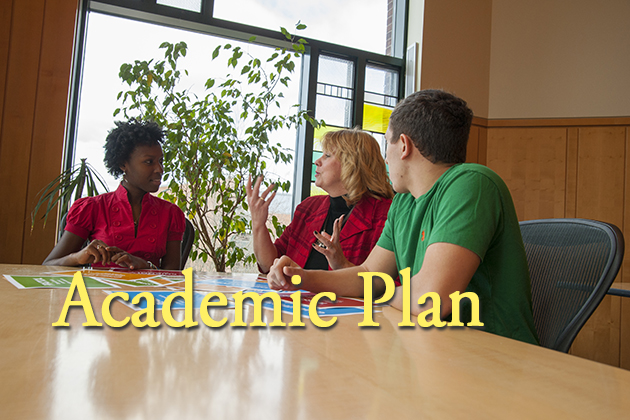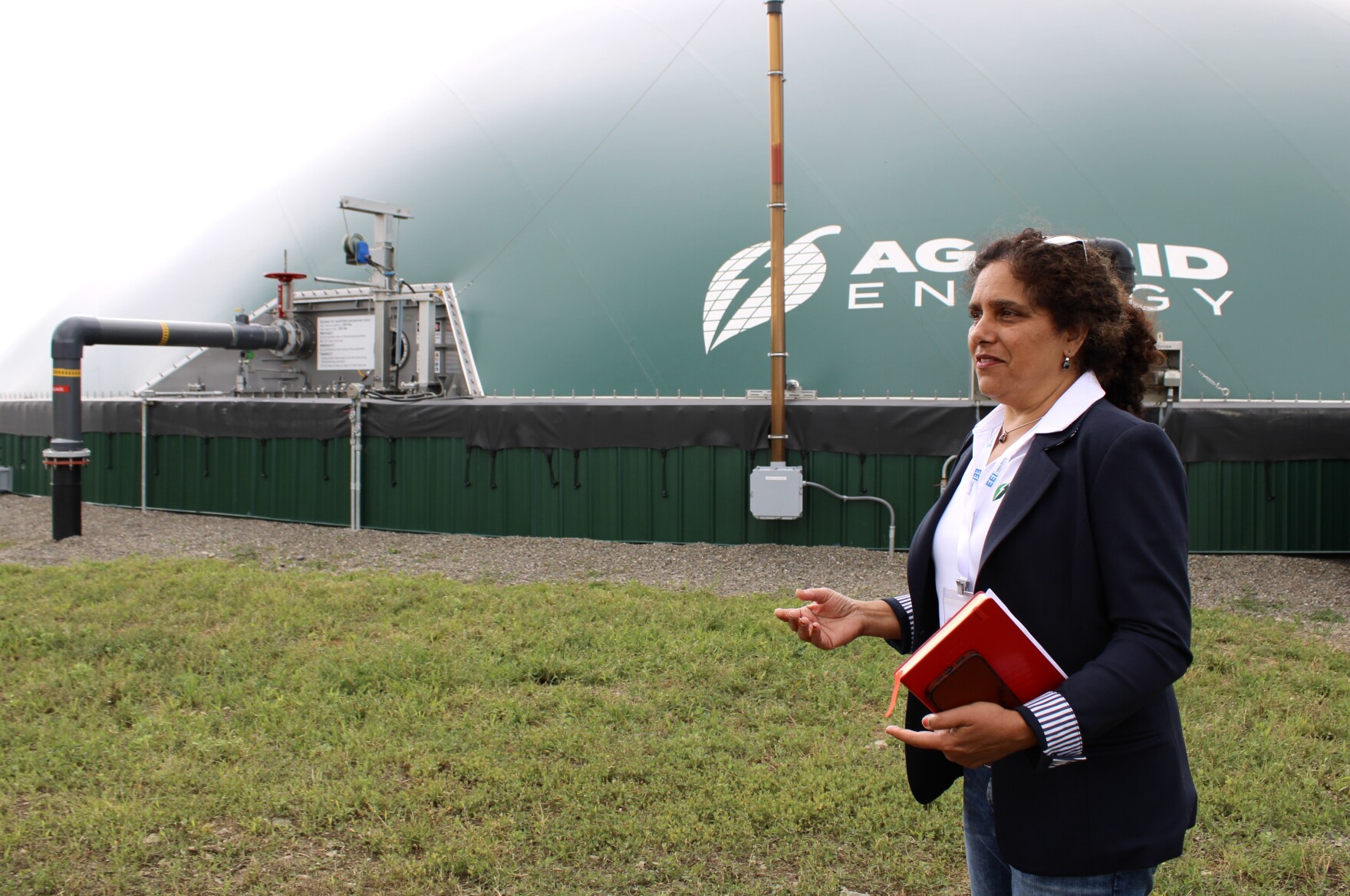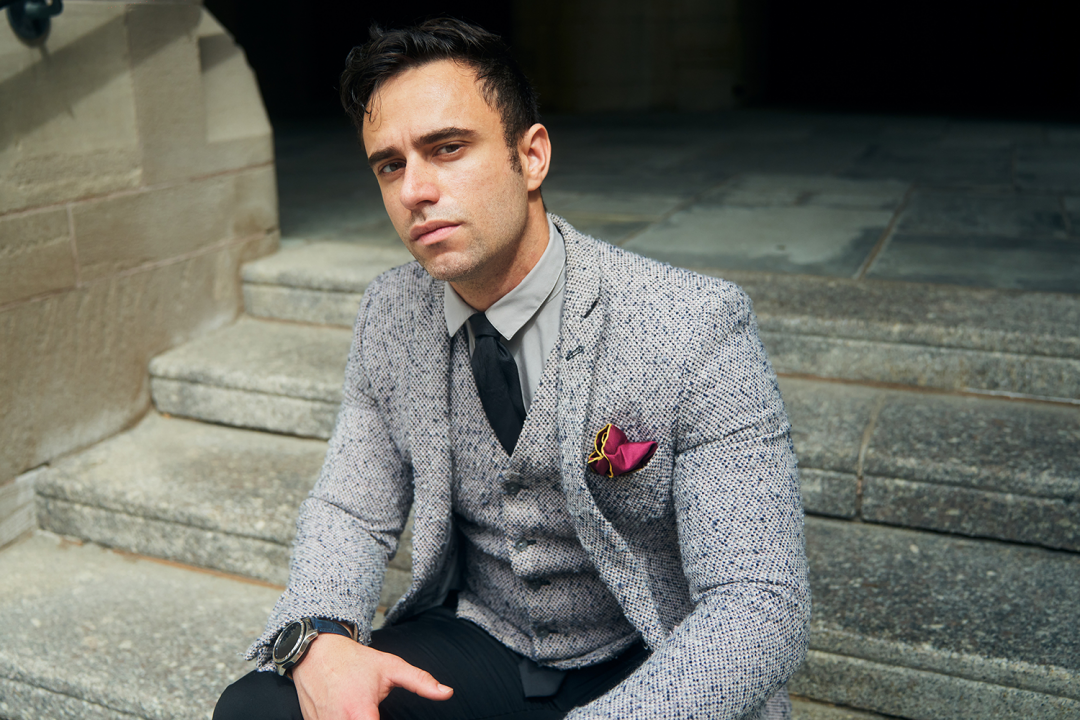The University of Connecticut has launched a comprehensive process to develop a new Academic Plan to achieve its aspiration to become a top flagship university recognized for excellence in breakthrough research, innovative education, and engaged collaborations with state, community, and industry partners.
The plan, dubbed “Our Time: UConn’s Path to Excellence,” will identify specific goals and strategic initiatives as a basis for making informed decisions on hiring faculty and staff, organizing academics, investing in facilities, allocating space, and other actions.
The University Academic Vision Committee has begun the preliminary work of gathering information and researching plans adopted by other flagship institutions. Professor Richard Schwab, dean emeritus of the Neag School of Education and the Neag Endowed Professor of Educational Leadership, serves as the committee’s chairman. The group is comprised of highly respected faculty members who will provide diverse, relevant, and institutional perspectives in growing the academic and research excellence at the University,
The process includes public forums and other opportunities for input over the coming months. The new plan is expected to be ready for review by President Susan Herbst and the Board of Trustees in December, for implementation beginning in January 2014.
Our vision is to create an institution that will serve as a dynamic national resource recognized for innovations in undergraduate and graduate education, as well as breakthrough research that creates both economic development and scholarship.
The University Academic Vision Committee will work closely with Provost Mun Y. Choi, expanding the scope of past plans by reflecting UConn’s growing momentum and heightened expectations as it aspires to the ranks of the nation’s top public research universities.
“Our vision is to create an institution that will serve as a dynamic national resource recognized for innovations in undergraduate and graduate education, as well as breakthrough research that creates both economic development and scholarship that is vital to intellectual development and creativity,” Choi says.
The plan is being developed during a pivotal time for UConn with key investments planned through the proposed Next Generation Connecticut project, which would revolutionize STEM (science, technology, engineering, and math) research and workforce development at UConn; the ongoing faculty hiring program; the Bioscience Connecticut and Jackson Laboratory partnership; and the development of the UConn Technology Park and its partnerships with industry and researchers.
“By developing and implementing a progressive academic plan that leverages these investments, UConn can and will achieve excellence through thoughtful growth, creative development of new opportunities, and careful stewardship and resource allocation,” Schwab says.
UConn has a strong track record of creating ambitious Academic Plans and meeting or exceeding their goals in recent decades. It already has surpassed goals in the current Academic Plan for student selectivity, new academic program development, and inter-disciplinary research.
Writing a new Academic Plan is a major undertaking, one that will draw on expertise from throughout the University and include input from students, deans, advisory committees for each school or department, and other stakeholders.
The process will be guided by principles that include:
- Innovative thinking to grow the University and guide investments to meaningful purposes despite fiscal challenges, including reductions in state support and intense competition for research funding.
- An objective and candid assessment to help the University achieve higher standards in all aspects: faculty recruitment, promotion, and tenure; teaching effectiveness; admissions standards; research productivity; and vital scholarship and creative works.
- A strong emphasis on scholarship and extramural research programs and development of centers of excellence to promote new discoveries and promote economic development. It is imperative for UConn to develop effective strategies to increase our federal, state, and industry research grants to meet those objectives. Jeffrey Seemann, the incoming vice president for research, will work closely with the UAVC in this aspect of the plan.
- An approach to leverage investments across the University, connecting the resources and intellectual capacity of various disciplines throughout UConn’s campuses. That includes aligning schools’ and colleges’ academic plans with the University’s larger priorities, a major part of the process and one in which stakeholders’ input will be key.
- An openness that is adaptable to institutional change, including the reorganization of schools and departments to enable UConn to best meet its goals.
- A deep commitment to enhancing programs to recruit, retain, and promote faculty, students, and staff of diverse backgrounds.
- Expansion of learning programs beyond the classroom and into global awareness through internships, research experiences, study abroad, service learning, and community outreach.
- Active participation of faculty, students, and staff to identify priorities and develop goals, along with full transparency of the process through public forums and websites.
The process and the guiding principles of the Academic Plan have been presented to the University Senate, the Council of Deans, and department heads. Next, each school and college will appoint a group of faculty, students, and staff to serve on their individual College and School Academic Vision Committees.
In developing their specific academic plans and ensuring they align with the over-arching goals of the university Academic Plan, these committees are being asked to respond to a basic set of tenets.
Richard Schwab (chairman), Neag Professor of Educational Leadership and emeritus dean of the Neag School of Education
Sally Reis (ex-officio member), vice provost for academic affairs and Board of Trustees Distinguished Professor
Amy Donahue (ex-officio), chief operations officer for academic administration and professor of public policy
Anne D’Alleva, interim department head and associate professor, Department of Art & Art History
JC Beall, professor of philosophy
Bethany Berger, Thomas J. Gallivan Jr. Professor of Law, School of Law
Preston Britner, professor of human development and family studies
Diane Burgess, Board of Trustees Distinguished Professor of Pharmaceutical Science
Lynne Healy, Board of Trustees Distinguished Professor of Social Work
Jon Goldberg, professor of reconstructive sciences
Brent Graveley, professor of genetics and developmental biology
Peter Luh, SNET Endowed Professor of Electrical & Computer Engineering
William Ross, ING Global Chair and professor of marketing, School of Business
Steve Ross, professor of economics
Larry Silbart, professor and department head of allied health sciences
Thomas Van Hoof, associate professor of nursing
These include reviewing the strengths on which they can build; examining new strengths to create; reviewing what can be done better by collaborating with other schools and colleges; considering which programs should be de-funded to reallocate resources; and identifying which of their continuing programs, while important, are not part of the Academic Plan.
In the coming months, as the University Academic Vision Committee and the College and School Academic Vision Committees develop their respective academic plans in collaboration, UConn will seek important input from the university community through Town Hall forums and University Senate Meetings.
The deans and their respective committees will provide updates of their key priorities and goals to the provost and the University Academic Vision Committee by July 1. The plans will then be evaluated to provide feedback to strengthen trans-school collaborations and to update and refine the university Academic Plan.
The final draft of the university Academic Plan will be presented at public forums in October and November, prior to presentation for review by President Herbst and the Board of Trustees in December.



